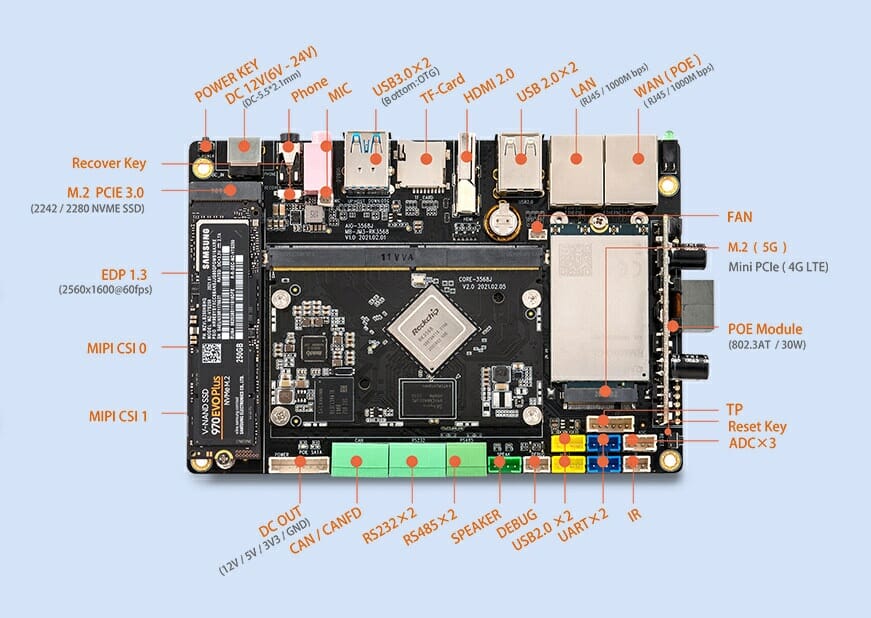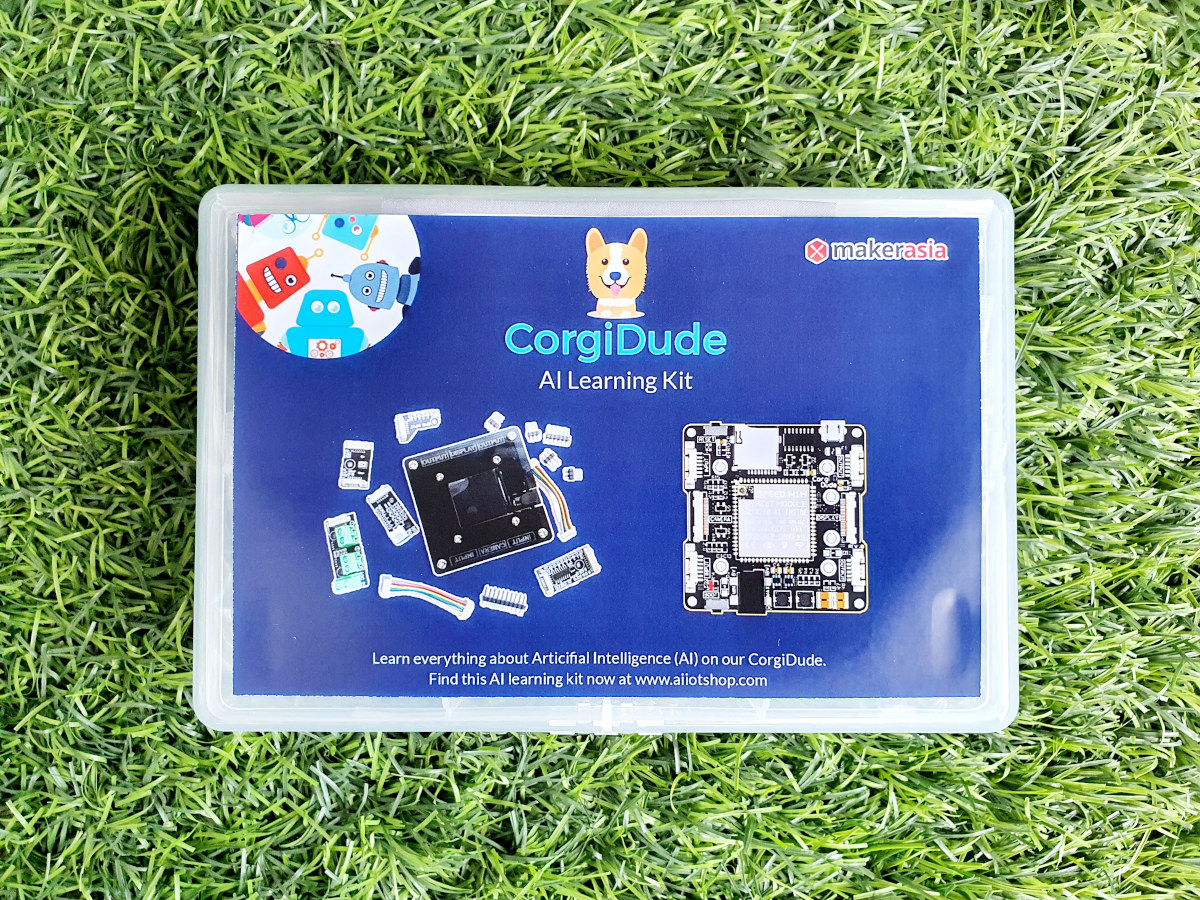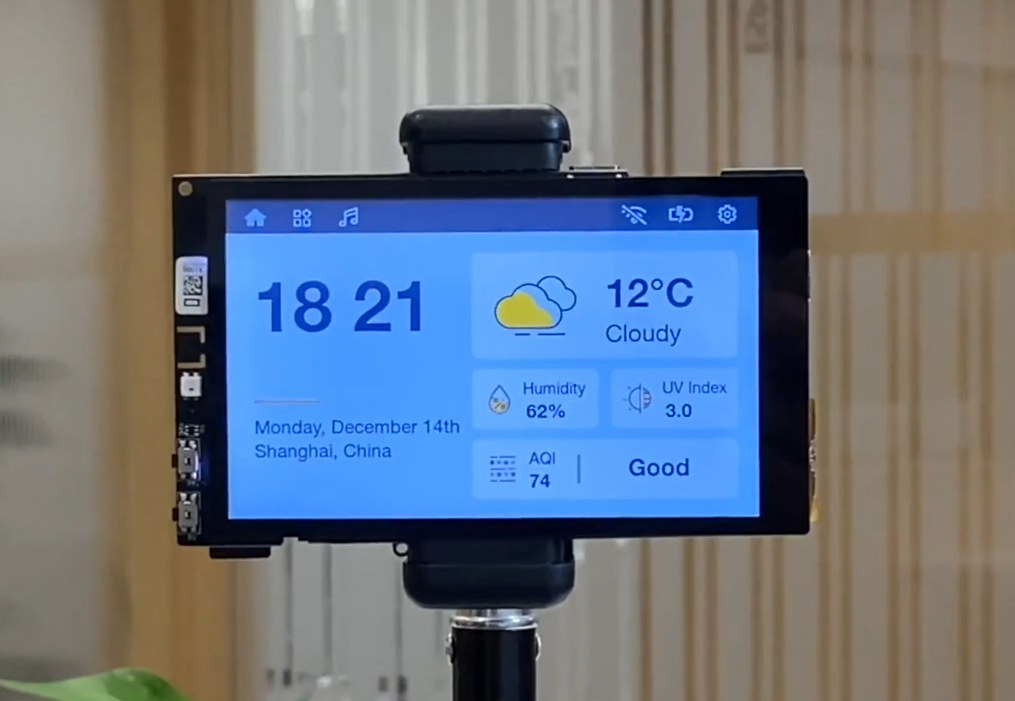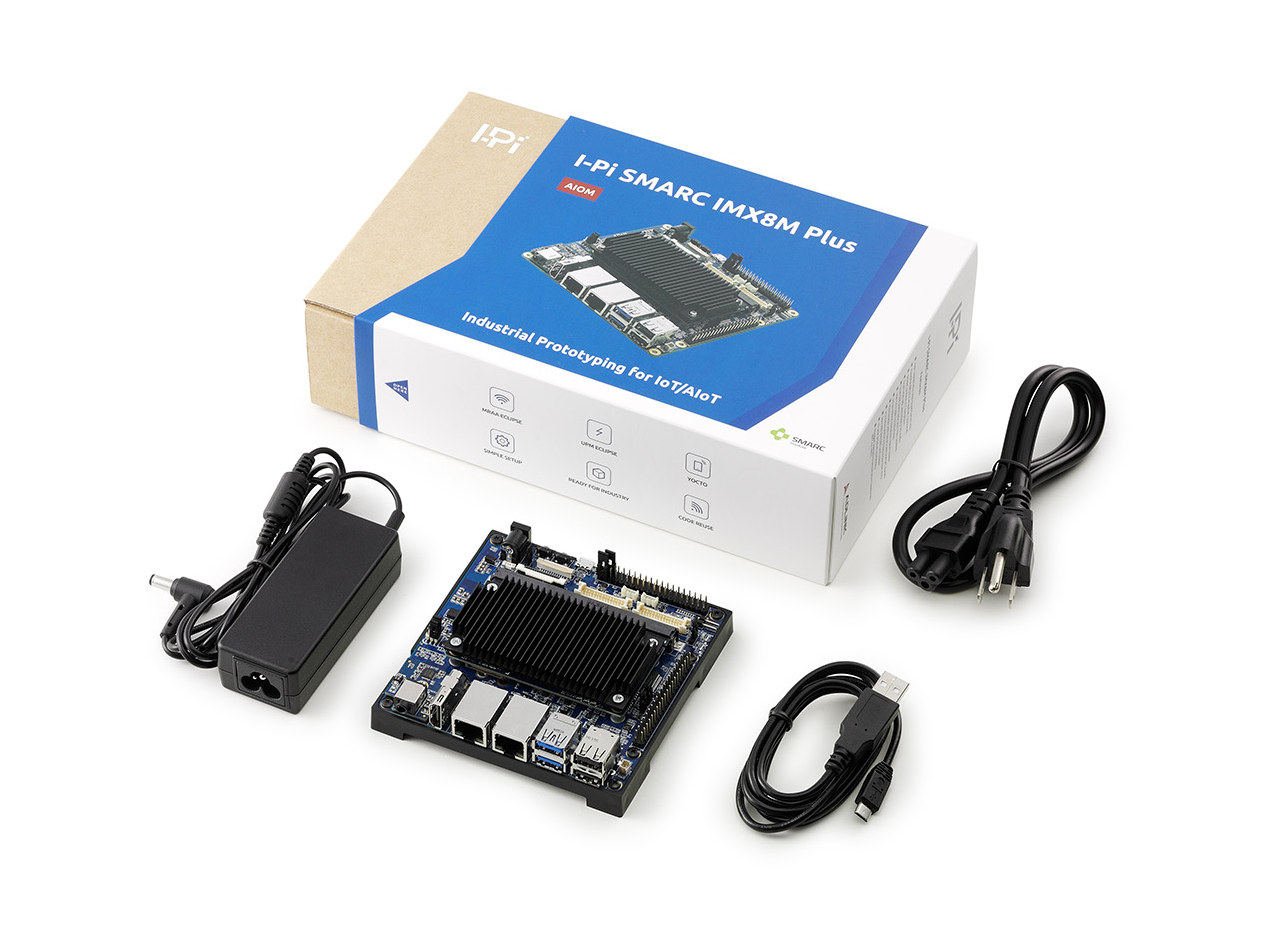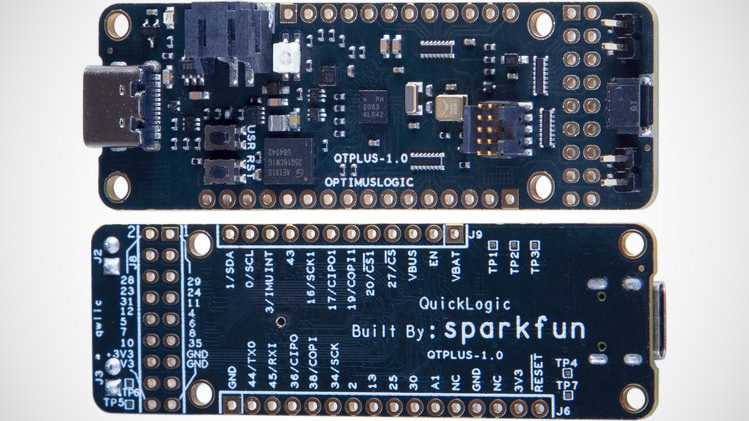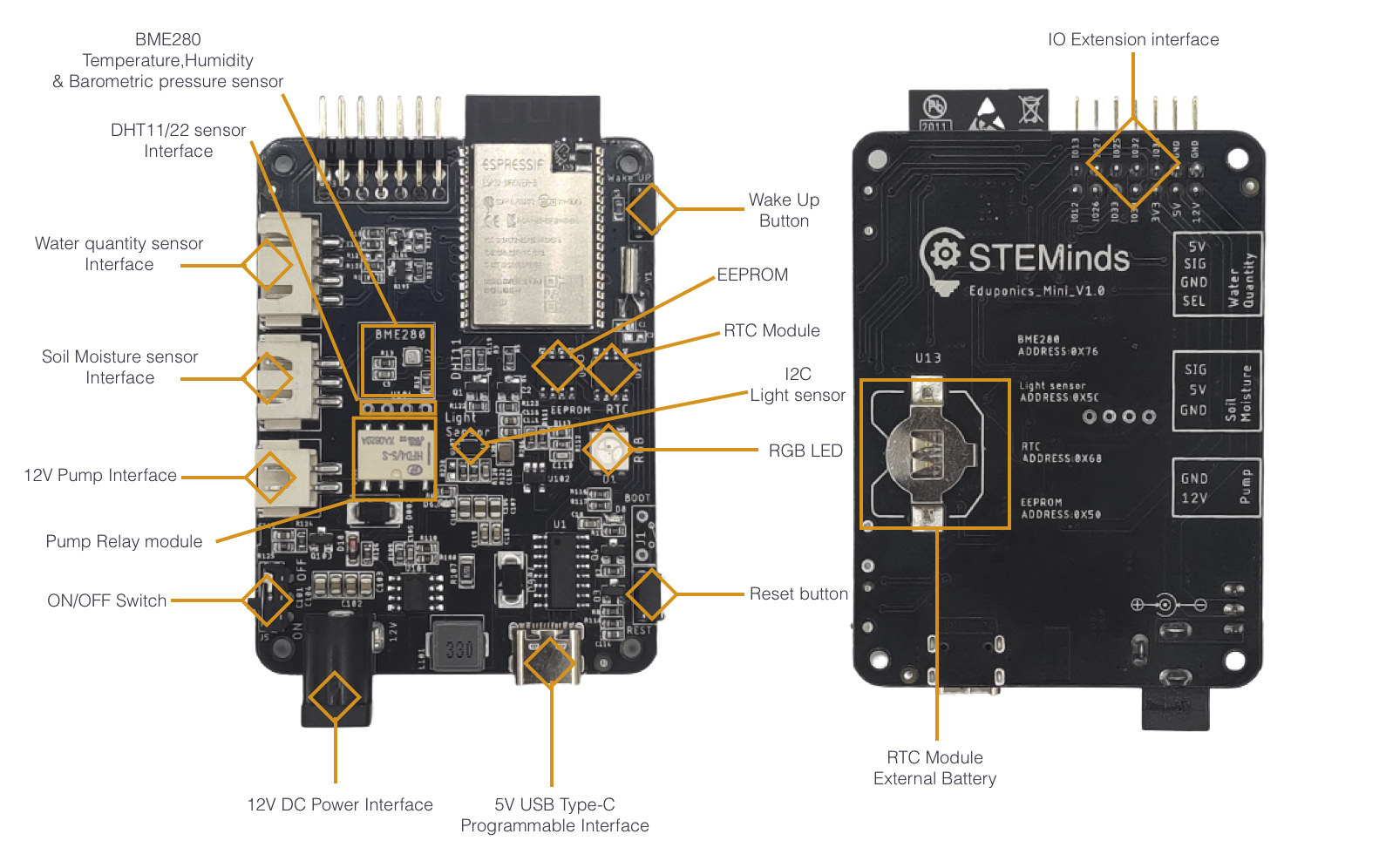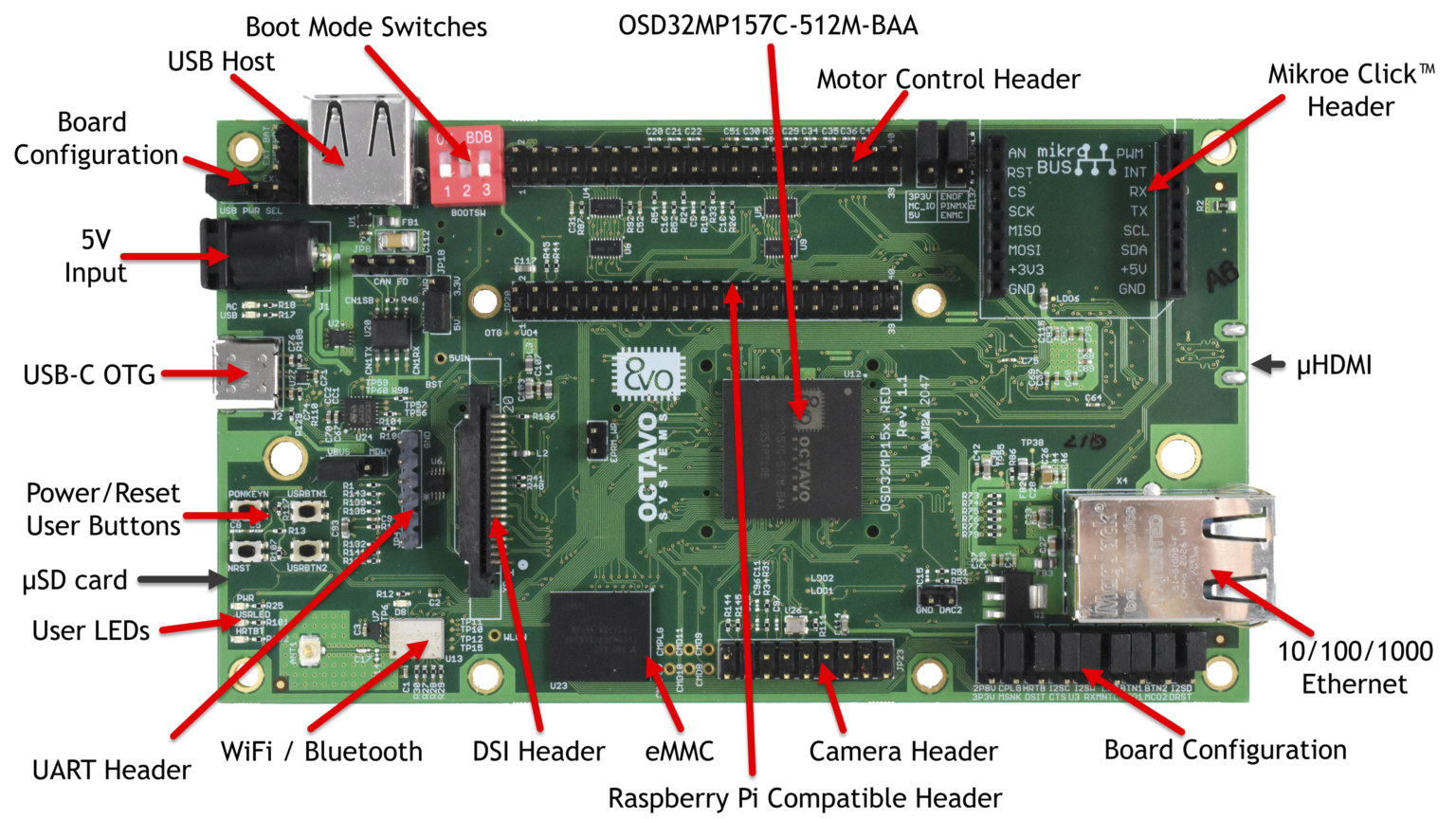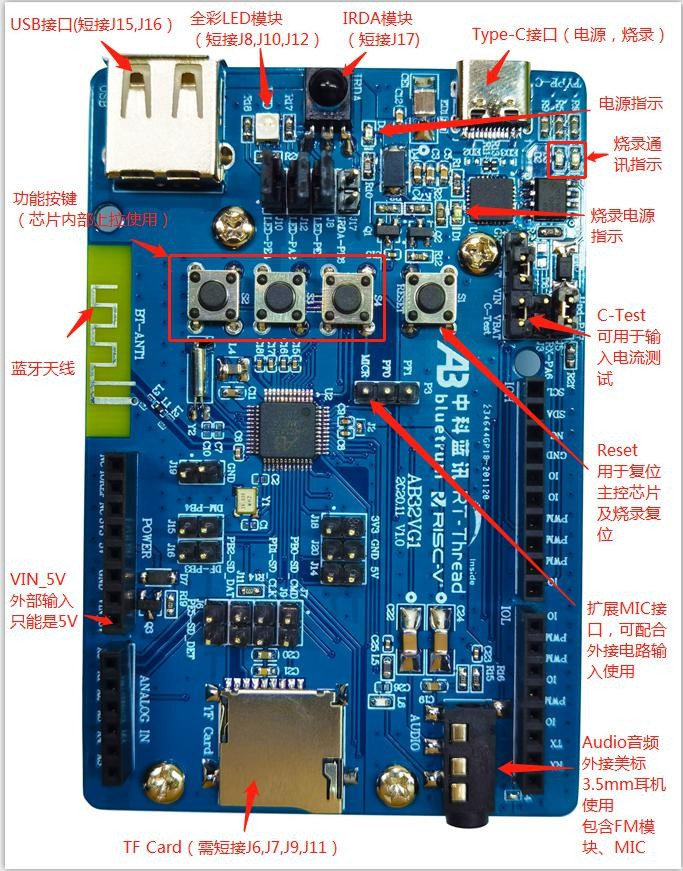Firefly has unveiled a new 314-pin SO-DIMM system-on-module (SoM) with Core-3568J AI Core powered by Rockchip RK3568 processor and equipped with up to 8GB RAM, 128GB eMMC flash with interfaces including PCIe, SATA, dual Gigabit Ethernet, HDMI 2.0, eDP 1.3, MIPI DSI and more. The company also provides AIO-3568J development kit for the module with all those interfaces plus an M.2 socket for 5G or WiFi 6 connectivity, and PoE support among other features. Core-3568J AI Core system-on-module Specifications: SoC – Rockchip RK3568 quad-core Cortex-A55 processor @ 2.0 GHz with Arm Mali-G52 2EE GPU with support for OpenGL ES 1.1/2.0/3.2, OpenCL 2.0, Vulkan 1.1, 0.8 TOPS NPU for AI acceleration, 4Kp60 H.265/H.264/VP9 video decoding, and 1080p100 H.265/H.264 video encoding System Memory – 2GB, 4GB, or 8GB LPDDR4 ECC RAM up to 1600 MHz Storage – 32GB, 64GB, or 128GB eMMC flash 314-pin SO-DIMM edge connector with: Storage – SATA 3.0 […]
Made in Thailand CorgiDude RISC-V AI board aims to teach machine learning
There’s a relatively small but active maker community in Thailand, and we’ve covered or even reviewed some made in Thailand boards including ESP8266 and ESP32 boards, a 3G Raspberry Pi HAT, and KidBright education platform among others. MakerAsia has developed CorgiDude, a board based on the version of Sipeed M1 RISC-V AI module with built-in WiFi, and part as a kit with a camera and a display used to teach machine learning and artificial intelligence with MicroPython or C/C++ programming. CorgiDude board specifications: AI Wireless Module – Sipeed M1W Module with Kendryte K210 dual-core 64-bit RISC-V RV64IMAFDC CPU @ 400Mhz with FPU, various AI accelerators (KPU, FFT accelerator…), 8MiB on-chip SRAM Espressif ESP8285 single-core 2.4 GHz WiFi 4 SoC plus IPEX antenna connector Storage – MicroSD card slot Camera I/F for 2MP OV2640 sensor up to 1280 × 1024 (SXGA) @ 30 fosm SVGA @ 30 fps, or CIF @ […]
ESP32-S2-HMI-DevKit-1 development kit ships with 4.3-inch touch display, 1,950mA battery
Espressif Systems ESP32-S2 single-core WiFi processor features an RGB LCD interface that makes it suitable for multimedia applications, and about two years ago, ESP32-S2-Kaluga-1 Multimedia Development Board was introduced with a touchscreen display & a camera. But now the company has launched another ESP32-S2 based development kit specifically designed for HMI (human-machine interfaces) found in smart home automation controllers, smart speakers with display, smart alarm clocks, and so on. Meet ESP32-S2-HMI-DevKit-1 equipped with a 4.3-inch color LCD display and a touch panel. ESP32-S2-HMI-DevKit-1 specifications: Wireless module – ESP32-S2-WROVER module with ESP32-S2 Xtensa single-core 32-bit LX7 microprocessor, up to 240 MHz with 128 KB ROM, 320 KB SRAM, WiFi 4 connectivity, 4MB flash, 2MB PSRAM Storage – Micro SD card slot Display – 4.3-inch display with 800×480 resolution, I2C capacitive touch panel Audio – Audio amplifier, built-in microphone, speaker connector USB – 1x USB-C OTG (DFU/CDC) port, 1x USB-C debug port […]
ADLINK launches SMARC Short Size Module, Devkit with NXP i.MX 8M Plus
We had seen many i.MX 8M Plus modules with built-in AI accelerator announced at Embedded World 2021, including two SMARC modules from Congatec and iWave Systems. ADLINK has added another of i.MX 8M Plus module compliant with SMARC 2.1 “short” standard with LEC-IMX8MP system-on-module equipped with up to 8GB RAM, 128 GB eMMC flash, as well as a development kit called I-Pi SMARC IMX8M Plus prototyping platform. LEC-IMX8MP module specifications Specifications: SoC – NXP i.MX8M Plus with quad-core ARM Cortex-A53 processor, Vivante GC380 2D GPU and GC7000UL 3D GPU, 1080p60 video decoder & encoder, optional 2.3 TOPS Neural Processing Unit (NPU) System Memory – 2/4/8GB LPDDR4L-4266 Storage – 16, 32, 64, or 128GB eMMC flash (build option) Wireless – Optional 802.11 ac/a/b/g/n WiFi 5 2X2 MIMO and Bluetooth 5.0 module 314-pin MXM 3.0 edge connector Storage – 1x SDIO (4-bit) compatible with SD/SDIO standard, up to version 3.0 Display – […]
Sparkfun Thing Plus – Quicklogic EOS S3 Arm eFPGA board launched in Crowd Supply
SparkFun Electronics is a well-known electronics retailer that usually sells its in-house developed or third-party boards through its own online store. But this time around, the company decided to launch “Sparkfun Thing Plus – Quicklogic EOS S3” through Crowd Supply crowdfunding platform. The board is based on QuickFeather board designed with the same Quicklogic EOS S3 Arm Cortex-M4 plus embedded FPGA SoC, but follows Sparkfun’s Thing Plus form factor with a Qwiic connector and a different mix of sensors. Sparkfun Thing Plus – Quicklogic EOS S3 (QTPLUS-1.0) board specifications: SoC – QuickLogic EOS S3 MCU + eFPGA SoC with Arm Cortex-M4F Microcontroller up to 80 MHz, up to 512 Kb SRAM, and an embedded FPGA (eFPGA) with 2400 effective logic cells, 64 Kb RAM Storage – 16 Mbit SPI NOR flash (GigaDevice GD25Q16CEIGR) Sensors STMicro LIS2DH12TR accelerometer Digital pulse density modulation (PDM) microphone with Wake-on-Sound (WoS) feature: Vesper VM3011-U1 Expansion […]
Eduponics Mini is an ESP32-powered Smart Agriculture kit (crowdfunding)
One sector of the economy that should benefit the most from the Internet of Things is the agricultural sector, as environmental sensors are needed to optimize yields and also decrease costs with lower electricity and water usage. STEMinds Eduponics Mini Smart Agriculture kit is designed for this purpose. At the heart of the kit is an ESP32 board equipped with light, temperature, humidity, and barometric sensors, as well as interfaces to connect an external pump, a soil moisture sensor, a water quality sensor, and more environmental sensors. Eduponics Mini board specifications: Wireless module – ESP32-WROVER-B module with ESP32 Wi-Fi and Bluetooth SoC, 4MB QSPI flash, 8MB SPRAM, PCB antenna Built-in sensors BH1750 I2C light sensor BME280 I2C temperature, humidity, and barometric sensor Expansion 2-pin connector for 12V pump with built-in relay module 3-pin connector for soil moisture sensor or any other analog or digital device 4-pin connector for water quantity […]
OSD32MP1-RED full-featured STM32MP1 development board launched for $265
OSD32MP1-RED development board was first announced last year together with another board based on Octavo Systems OSD32MP1 System-in-Package (SiP). The chip packs an STMicro STM32MP1 Cortex-A7/M4 processor, up to 1GB DDR3L memory, 4KB EEPROM, a PMIC, two low-power MEMS oscillators, over 100 passive components into a single 18x18mm 302 Ball BGA package. The company has now just announced the availability of the OSD32MP1-RED development platform on DigiKey, Arrow, and Mouser for around $265 and up. There have been a few modifications to the design with, for instance, the USB header replaced by a USB Type-A connector, but the most notable difference is that OSD32MP1-RED is now using a green PCB instead of the red one showed during the first announcement… OSD32MP1-RED specifications: SiP – Octavo Systems OSD32MP157C-512M-BAA with STM32MP157C SoC with dual-core Arm Cortex-A7, Cortex-M4 real-time core, plus 512MB DDR3 memory, STPMIC1A power management chip, EEPROM, oscillator, and passive components […]
Bluetrum AB32VG1 board features AB5301A Bluetooth RISC-V MCU, runs RT-Thread RTOS
Bluetrum, a Shenzhen-based fabless company focusing on audio chips, has designed the AB32VG1 board based on its AB5301A Bluetooth RISC-V MCU for general-purpose and audio applications. The board comes with a MicroSD card, a USB port, a 3.5mm audio jack, and Arduino UNO compatible headers for easy prototyping. Bluetrum AB32VG1 board preliminary specifications: MCU – Bluetrum AB5301A RISC-V MCU @ 120 MHz (overclockable to 192 MHz) with 192KB RAM, 1MB flash, Bluetooth 5.0 connectivity and FM radio; LQFP48 package Storage – MicroSD card slot Audio – 3.5mm audio jack, 3-pin microphone header Connectivity – Bluetooth 5.0 with PCB antenna USB – USB 2.0 host port, USB Type-C port for power and programming Expansion – Arduino UNO header with 1x I2C, 6x ADC, 6x PWM Misc – IR receiver, 3x user buttons, 1x reset button, RGB LED, power LED, status LEDs, various configuration jumper Power Supply – 5V via USB Type-C […]


